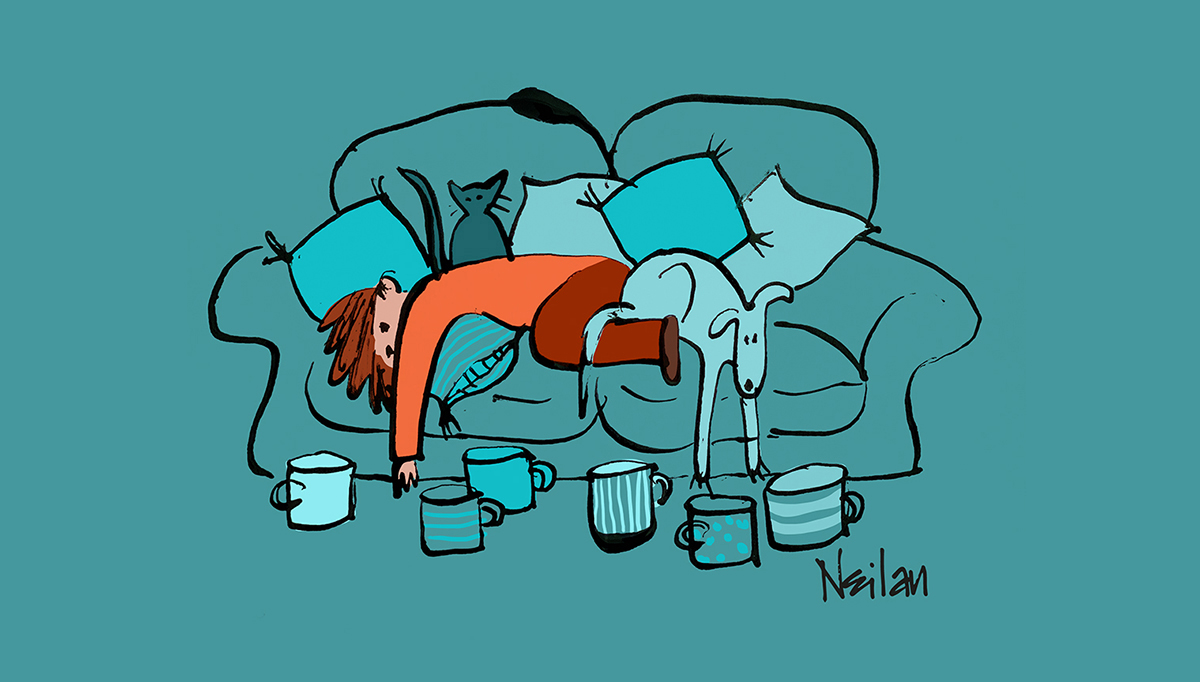I’m absolutely exhausted from avoiding stuff all day.
From a recent conversation with a friend
This came up in conversation with a friend recently and we both collapsed in laughter. Procrastination is exhausting. It also limits our potential for health, wealth and happiness as small obstacles gradually become seemingly insurmountable barriers.
Why do we put so much energy into procrastinating when it would probably be easier just to get on with the task at hand? We need to understand why we avoid certain tasks before we explore how we can push through the resistance.
What Makes Procrastination and Avoidance So Seductive?
Putting energy into finding justifications is much easier than finding energy to do The Unappealing Thing: counter-intuitive, but part of our human condition. With more demands on one’s time and resources than ever, there is no shortage of excuses. Recognise any of these?
- “I don’t have time.”
- “I don’t have the energy.”
- “I know it needs to be done, but last time it was so boring and difficult. I can’t face it.”
- “I don’t want to rock the boat or hurt someone’s feelings!”
- “I’m not sure what’s required.”
- “What if I fail?”
- “I’ve left it too late.”
There are prizes to be won by playing to these excuses, such as maintaining the status quo; being “likeable”; losing yourself in comforting routines and habits. These rewards come at a cost, though, and the benefits are short-lived.
Understanding why you procrastinate
Tim Psychl, procrastination expert and author of “Solving the Procrastination Puzzle” has identified seven triggers that can induce procrastination:
- Boring
- Frustrating
- Difficult
- Ambiguous
- Unstructured
- Unrewarding
- Lacking in personal meaning
Next time you feel the urge to get out your phone and start scrolling, think which of these triggers has inspired you. Once you have done that, you are ready to reverse that trigger.
How to wade through the mud of procrastination
Reframe the Task
Once you have an idea why the resistance is coming up, can you find a way to think differently about it? What would make it more attractive?
Break it Down
Does it need doing at once or can it be divided into more manageable tasks? Could you even delegate some of the more unappealing areas to someone else? If, for example, you find it stressful, daunting and difficult to complete your tax return, maybe it is worth the investment of hiring an accountant.
Get Clear on Why You Are Doing It
What is the prize for getting it done? (Perhaps you need to offer yourself one.) And what is the cost of not doing it?
Simplify Things
Do you really need to complete X before you do Y? Do you need all the tools now? Just start with a more basic kit of parts and build on that.
Disconnect
Devices, colleagues, family members, pets: we are surrounded by potential distractions. This is becoming increasingly difficult as our home and work environments become more fluid and boundaries less rigid. If you can pre-empt the likelihood of procrastination, take steps in advance to minimise physical disruption. Unplug from devices, turn off the WiFi, let the humans know you are not to be interrupted, give the dog a bone to chew.
Take the First Step
It is much easier to keep going once you have started. Motivation accumulates rather like compound interest and the satisfaction of moving forward increases the likelihood of keeping going.
Procrastination happens. If you can recognise what is causing it, you have a much better chance of pushing through it. Once you take that first step, it is easier to muster the motivation to keep on going and enjoy the benefits as they grow – and grow they will!


